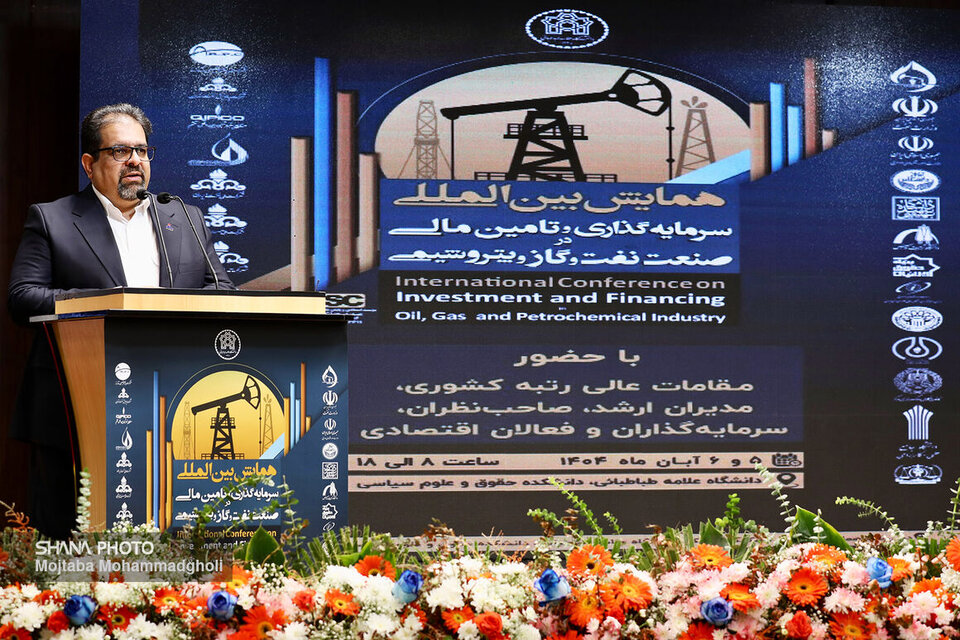Speaking Monday at the International Conference on Financing the Oil, Gas and Petrochemical Industry, Saeid Tavakoli emphasized the importance of investment and the need to resolve legal and administrative obstacles. “In many cases, well-defined strategies face challenges at the implementation stage, particularly due to legal and regulatory constraints,” he said.
Tavakoli noted that NIGC has taken effective steps toward energy efficiency and consumption optimization, citing the pilot program involving contractor companies in seven provinces, which is expected to raise energy efficiency by more than 10 percent.
mproving Efficiency of 4.1m Heaters
He highlighted another major initiative to improve heater efficiency, saying more than 20 million low-efficiency heaters are currently in use across the country. “So far, contracts have been signed to supply 1.725 million new heaters, and another 300,000 units will be replaced by year’s end,” he said. Under an Economic Council resolution, a total of 4.1 million heaters are covered by the program.
Tavakoli added that more than 111,000 public boiler rooms and about 50 percent of those in government buildings have been upgraded. “We are also installing 100,000 smart control systems in boiler rooms,” he said, noting that a comprehensive tariff reform package has been designed to encourage government agencies to set a proper example in energy consumption.
He said that although Iran ranks as the world’s third-largest gas producer, it is also among the most energy-intensive consumers. “While the household sector’s share is smaller than that of power plants and industries, during peak consumption periods it puts the greatest strain on the national gas network,” he said. “Savings in this sector would allow surplus gas to be redirected to industries and petrochemical plants, contributing to economic growth.”
nvestment Opportunities in Gas Sector
The deputy oil minister said NIGC’s investment portfolio includes a range of development and improvement projects that can advance national goals for energy efficiency and sustainable growth if implemented effectively.
“A total of 68 investment projects in the gas industry have been introduced to investors,” Tavakoli said. “Many of these are short-term, continuous improvement projects with high appeal for investors, such as those involving digitalization, measurement systems, data use, and data governance.”
He noted that data management and analysis are key areas emphasized in Iran’s Seventh Development Plan and are being pursued with the support of the Parliament’s Article 90 Commission and other stakeholders. “NIGC has incorporated this issue into its operational packages, as the country has long faced major challenges in data analysis, but significant progress is now being made,” he added.
Ensuring Return on Investment
Tavakoli said two major projects have been defined in the gas supply chain and refinery sectors. “According to the Seventh Development Plan, total projected investment for NIGC amounts to about $42 billion,” he said. “In the current package under study, we have sought to distribute risks fairly between parties. Our goal is not to transfer risks to investors but to ensure a reliable return on investment based on feasibility studies and economic indicators.”
He said the list of 68 projects is available on the NIGC website and could attract both domestic and foreign investors because of their diversity, profitability, and operational focus.
Tavakoli also called for the establishment of a permanent secretariat for the conference to ensure that discussions and expert panels lead to a shared understanding, practical action, and tangible outcomes. “If any stage of this process is left incomplete, investment efforts will not be fully effective,” he said.
Transparency as a Key to Success
The deputy oil minister stressed that transparency and verifying investor qualifications are essential for success. “We must ensure that the investment environment is free from any perception of predetermined management and that all participants operate within the framework of legal regulations,” he said.
According to Tavakoli, if gas is used in productive sectors to generate added value, the return on investment could exceed initial projections. “Launching this process can mark an important step toward boosting investment in the gas industry, and with continued cooperation and consistent follow-up, the expected outcomes can be achieved,” he said.


Your Comment